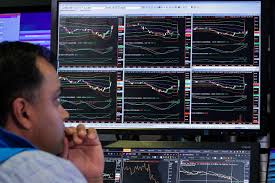These 3 Socially Conscious Strategies Can Boost a Company’s Bottom Line

The stocks of strong corporate citizens generally outperform their rivals over the long term. For socially conscious investors, that raises a chicken-and-egg question: Do companies that perform well by ESG measures (or the practice of evaluating and screening companies based on their environmental, social or governance efforts) beat the market because they’re already well-run? Or do otherwise ordinary companies become more attractive to investors by pumping up their ESG scores?
JUST Capital, a non-profit that evaluates which organizations operate in the public’s best interest, has provided some clarity to this riddle in a new report released today exclusively to Fortune.
JUST, which was founded in 2013 by a group of investors that includes billionaire Paul Tudor Jones, analyzed the Russell 1000, measuring share performance along with a number of other metrics. These metrics, which include measures of worker pay and privacy policies as well as traditional ESG measures, are in turn based on a JUST annual public survey that determines what issues matter to Americans when analyzing corporate behavior.
One reason that strong corporate citizens tend to outperform, based on numerous studies in the ESG space, is that they post higher profits and better margins in the short run, allowing them to continue a virtuous cycle over the long term. JUST’s new survey reinforces those findings: For example, companies in the top quintile of JUST scores saw a return on equity 6.4 percentage points higher than companies in the bottom quintile. “Corporate leaders increasingly understand that attending to the needs of all stakeholders—not only their shareholders—is good for the bottom line,” says JUST CEO Martin Whittaker.“
But some strong corporate practices pay off more dramatically than others. JUST’s Russell 1000 analysis finds that companies focused on pollution management showed the largest positive improvements in net margins. At companies that improved their ability to control for greenhouse gas emissions or chemical water discharges, among other factors, net margins were about two percentage points higher.
Similar results were seen among companies that offered stronger retirement packages. In that category, JUST considered whether companies offered a 401(k) match and the number of participants in the retirement plan, among other factors. Having a robust “international conflict management strategy” came in third; that category measures a company’s commitment to cross-border business concerns, such as human rights issues within the supply chain or utilizing conflict-free materials.
One of the largest impacts on margins – even more than pollution management – was the number of jobs that a company offered. But JUST found that adding jobs could bring diminishing returns after a company reached a certain size.
Clarity for investors
Company management and investors alike “should pay attention to these things” if they want to make the most of their socially conscious strategies, says Hernando Cortina, director of indexes and analytics at JUST Capital.
This data adds some clarity to the analysis around profitability performance under ESG. Since investment firms, from portfolio managers to hedge funds to index funds, have embraced ESG analysis, it’s becoming more than a niche geared to bleeding hearts. Financial consultant Opimus estimates that the responsible investment market reached $ 30 trillion in assets in 2018, and expects that to grow to $ 35 trillion by 2020. Of that capital pool, 45% came from those specifically screening companies based on their ESG scores.
While 78% of the S&P 500 now provide sustainability reports, and just over two-thirds set environmental goals, only 40% of companies set social goals, according to the Sustainable Investment Institute.
Whatever their motivations, doing good seems to be a smart strategy for ensuring your bottom line does well.
More must-read stories from Fortune:
—This recession predictor just hit levels not seen since 2007
—Investment banks are pressing “play” on podcasts
—Rare earth metals aren’t the trade war weapon Beijing suggests
—These born-in-the-U.S.A. stocks are born to run
—Listen to our new audio briefing, Fortune 500 Daily
